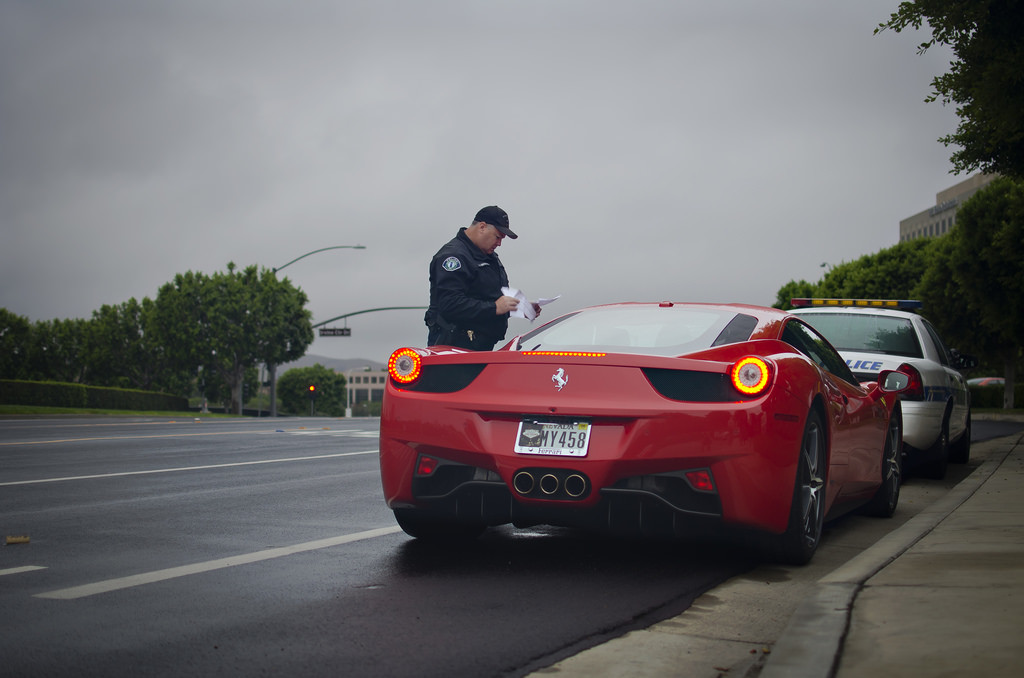10 WAYS TO AVOID UNNECESSARY CONFLICT WITH THE POLICE

1. “RELAX”
This rule may be tough when you feel like the police are bothering you for no reason. Managing your words, actions, and tone is the key to this rule. If the officer feel like you have an attitude, he/she is going to be even more of an asshole. They live for entertainment. All you have to do is relax. Show respect and kill them with kindness.
2. YOU HAVE THE RIGHT TO REMAIN SILENT
Don’t say too much, officers can and will use what you say in court. Sure, answer their questions but don’t go on and on like you featured on First 48. If you feel like they are asking for too much, you can simply reply “I am going to remain silent, I’d like to talk to a lawyer”. At that point, you are using your 5th amendment.
3. RIGHT TO REFUSE SEARCHES
Police can only search you or your car when they have probable cause for something. If that’s not the case, you do not have to consent to a search. Say “I do not consent to searches”. Just keep your car clean, and smelling good, and you’ll be alright.
4. DON’T GET TRICKED
Refusal is not evidence of guilt. Did you know it’s technically legal for police officers to lie to you? They can’t get in trouble for it. Don’t allow the police to trick you. By knowing your rights, you could eliminate a lot of extra shxt. Don’t allow the threats and promises to scare you.
5. DETERMINE IF YOU ARE FREE TO GO
All you have to say is “Are you detaining me or am I free to go”. This will establish that the encounter is not voluntary, which can help you later in court. If the officer does not answer the question, then you are free to go. If the officer interrogates you, refer to rule 2.
6. DON’T EXPOSE YOURSELF
In other words, don’t be hot!
7. DON’T RUN
Your chances of getting away are slim to none. It’s not even worth it.
8. NEVER TOUCH A COP
Pause.
9. REPORT MISCONDUCT: IS IT SNITCHING IF YOU’RE SNITCHING ON A COP?
We are in a digital age, take out your phone as soon as you see the blue and red sirens. Record as much as you can. Try to remember every single detail during the encounter as if you are about to take a final exam. The more information, the better. Officer statements, badge numbers, appearances, and names will help later on in court. Seek witnesses as well.
10. YOU DON’T HAVE TO LET THEM IN YOUR HOUSE
Check to see if the officer has a signed warrant from a Judge. If not, simply say, “I cannot let you in without a warrant.”

The Importance of Knowing Your Rights and Staying Safe with the Police, Especially as a Person of Color
Law enforcement is an important aspect of maintaining order and safety in society. However, for many people of color, interactions with the police can be tense and even dangerous. In light of recent events, it has become more important than ever to know your rights and to stay safe when dealing with the police.
- Know Your Rights It’s crucial to know your rights as a citizen, especially in interactions with the police. Some important rights to remember include:
- The right to remain silent: You have the right to remain silent and not incriminate yourself. You also have the right to refuse to answer questions without a lawyer present.
- The right to refuse a search: Unless an officer has a warrant or probable cause, you have the right to refuse a search of your person, property, or vehicle.
- The right to a fair trial: You have the right to a fair trial and to be represented by a lawyer.
- The right to file a complaint: If you feel that an officer acted inappropriately, you have the right to file a complaint with their department or a civilian review board.
- Best Practices for Staying Safe Here are some best practices for staying safe when dealing with the police, especially if you are a person of color:
- Remain calm and respectful: When interacting with law enforcement, remain calm, speak clearly and respectfully, and avoid making sudden movements.
- Show your hands: Make sure the police can see your hands at all times to avoid any misunderstandings.
- Don’t touch an officer: Avoid touching an officer or their equipment, as this can be seen as a threat and lead to physical force.
- Don’t resist arrest: If an officer determines that you should be arrested, resist calmly, as physical resistance can escalate the situation.
- Record the interaction: If possible, record the interaction with the police to serve as evidence if necessary.
- Be an Advocate for Change Finally, it’s important to advocate for change and work towards a more just and equitable society. This can involve supporting organizations and movements that work towards police reform and promoting positive change in your community.
In conclusion, understanding your rights and staying safe in interactions with the police is crucial, especially for people of color. By familiarizing yourself with the law and best practices, you can help prevent misunderstandings and conflicts and promote positive change in your community.
